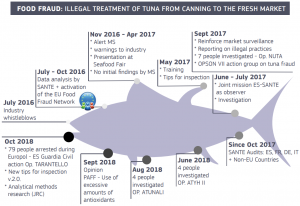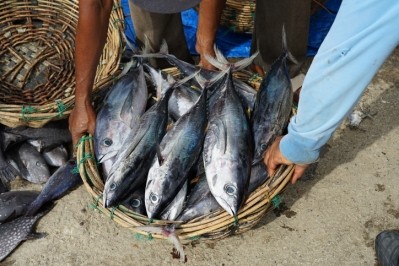EU records significant jump in cross-border food fraud cases in 2018

Germany (58) made the most requests last year, up slightly from 52 last year. There were 32 in France up from 35 and 23 in Belgium. Cases reported by the Netherlands and Italy both dropped in 2018. The Netherlands reported 23 cases in 2017, dropping to seven last year. In Italy, they fell from 20 to 11.
EU food is safer than ever, yet consumer trust is low
“The complex nature of our globalised food supply chains and the economic motivation to provide cheaper food products have contributed to the prevalence of food fraud,” said the report. The EU Food Fraud Network works on a voluntary basis for cross-border non-compliance and which was created in 2013 in the wake of the horse meat scandal.
It said that as a result of public health risks caused by various high profile food fraud cases, most recently the fipronil egg scandal in 2017, “competent authorities are losing credibility, companies are losing money and consumers are losing trust in food. It creates a major paradox: EU food is safer than ever, yet consumer’s trust is low”.
The EU Food Fraud Network said the list of requests exchanged in the system does not represent the entirety of food fraud incidents occurring in the EU. It estimates that the costs related to food fraud for the global food industry are at around €30bn every year, threatening the proper functioning of the internal market.
The fish products category had the largest number of requests (45), followed by meat products and fats and oils. A third of suspected violations relating to fish and fish products concerned unapproved treatment and processes, or replacement/dilution/addition/removal in product. Nearly 40% of suspected violations in meat products related to incorrect documentation. Nearly 60% suspected violations relating to fats and oils were because of mislabelling.
Fraudulent practices in the food sector may also lead to public health risks. Some notorious examples:
- 1981, Spain: the ‘rapeseed oil’ fraud intended for industrial use affected about 20,000 people and led to between 370 and 835 deaths in Spain
- 1999, Belgium: dioxin found in food resulted in massive economic losses
- 2008, China: milk and infant formula adulterated with melamine resulted in more than 50.000 sick babies and around six fatalities
- 2012-2014, Czechia and Poland: methanol poisoning from the sale of illegal spirits causing around 59 casualties
- 2013: horse meat in beef products
- 2017: fipronil in eggs
Examples of EU cooperation in 2018
Members of the EU Food Fraud Network exchange information on potential intentional violations of the legislation. One instance of coordination action involved an investigation into the fraudulent selling of tuna.
In this case, the tuna intended for canning was illegally treated with chemical substances that altered its colour to give the misleading impression of its freshness. The investigation led to more than 51 tonnes of tuna being seized. According to recent information, the EU Food Fraud Network said there are still suspicions relating to tuna on the market that has been treated to change its colour.


























